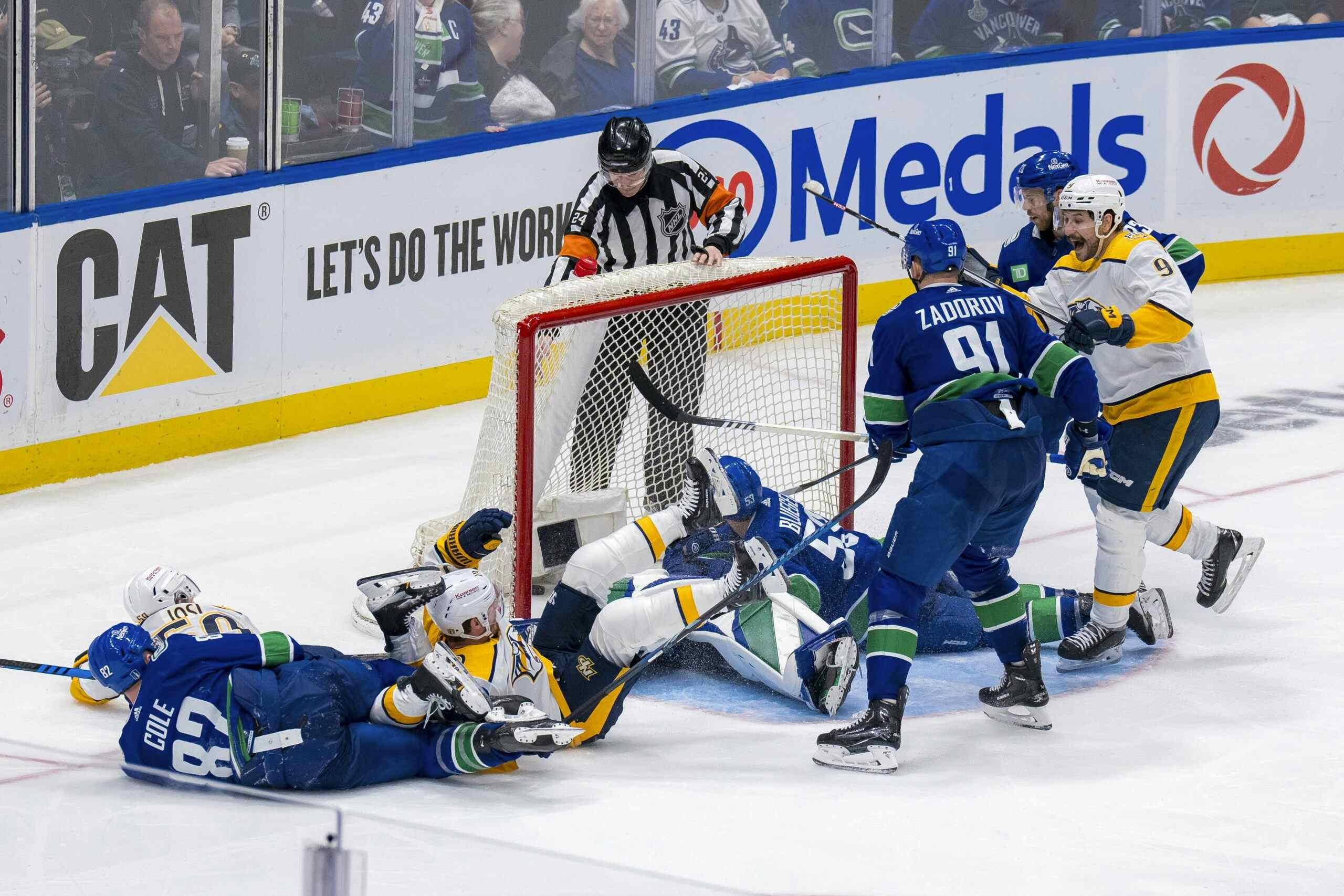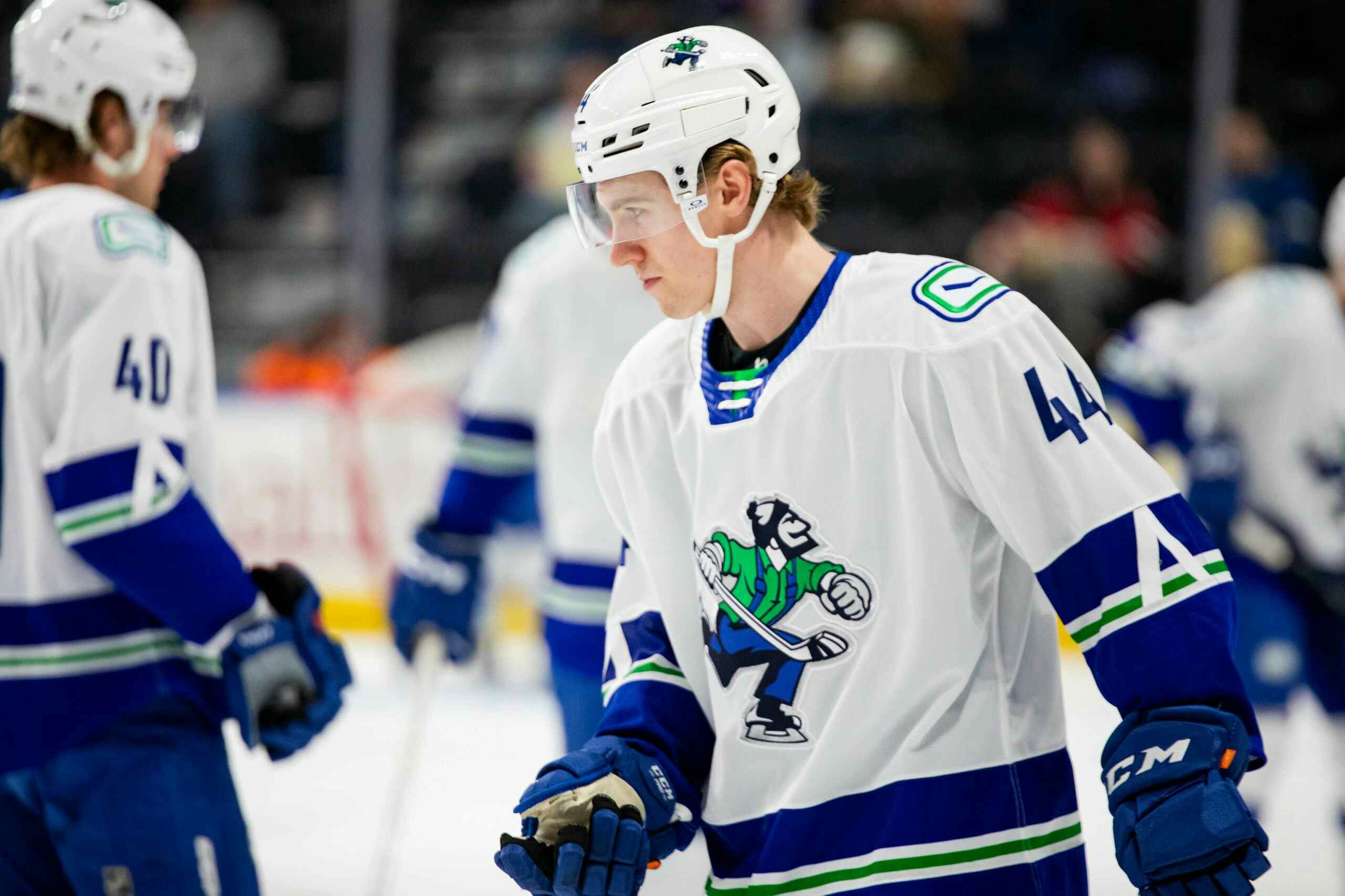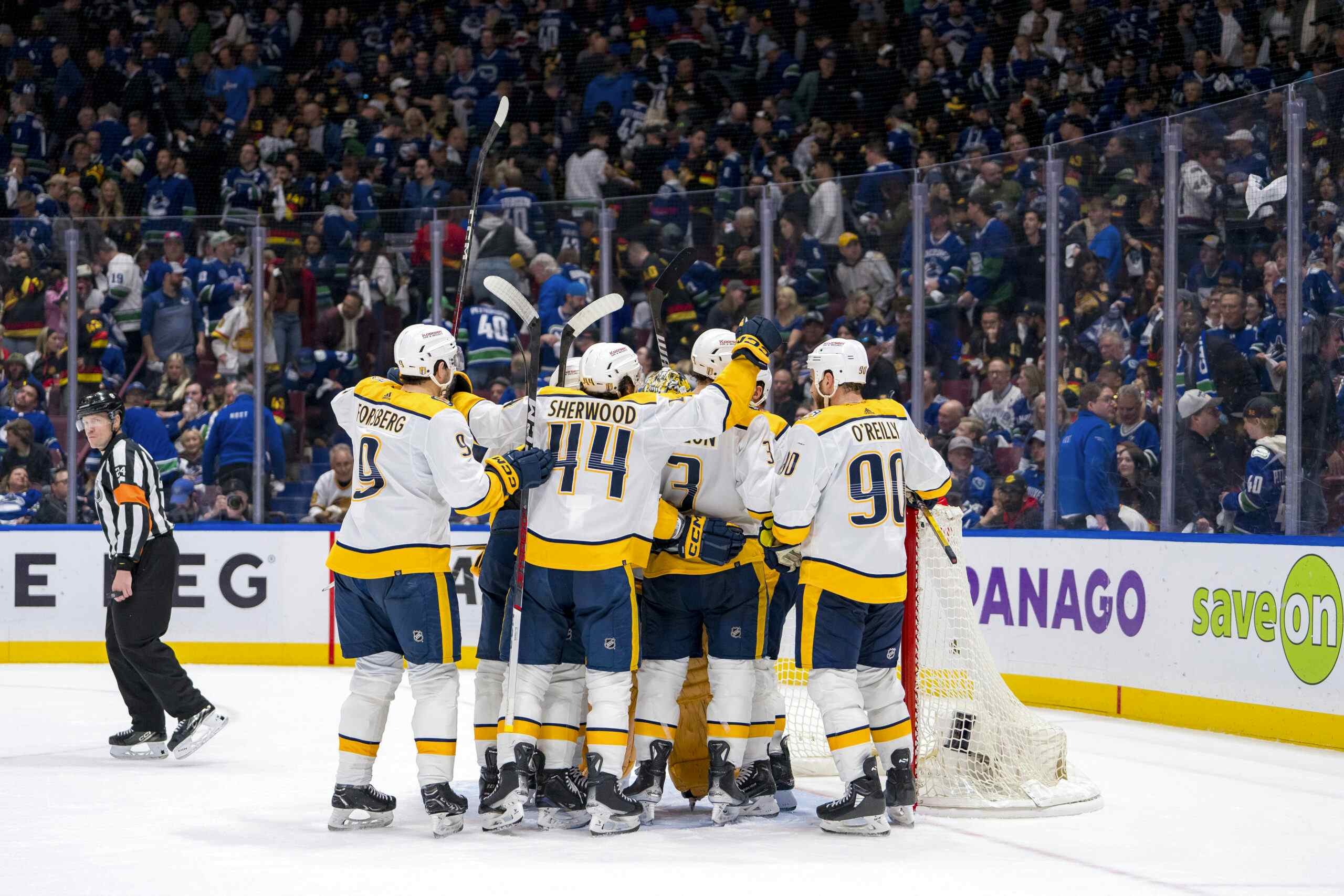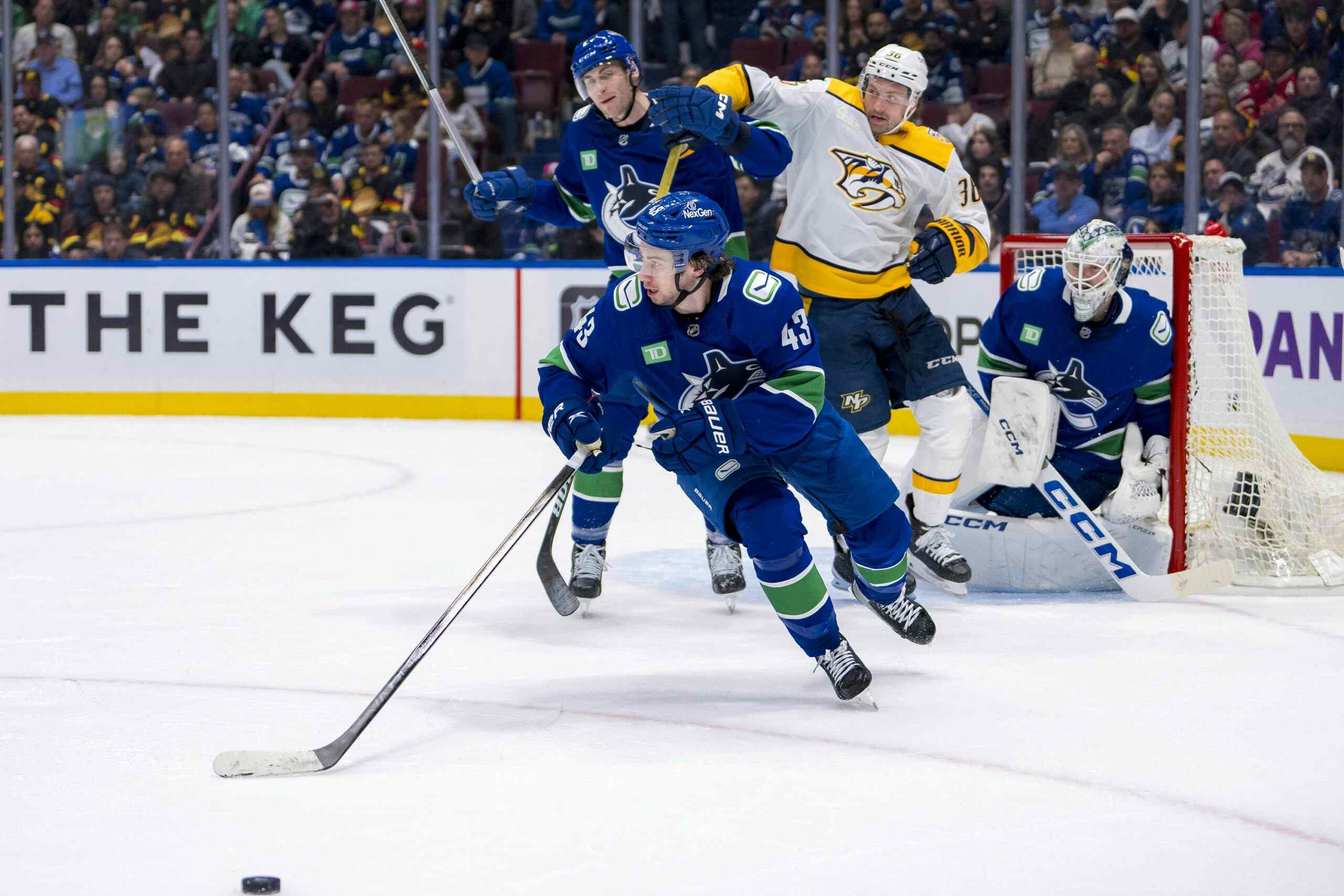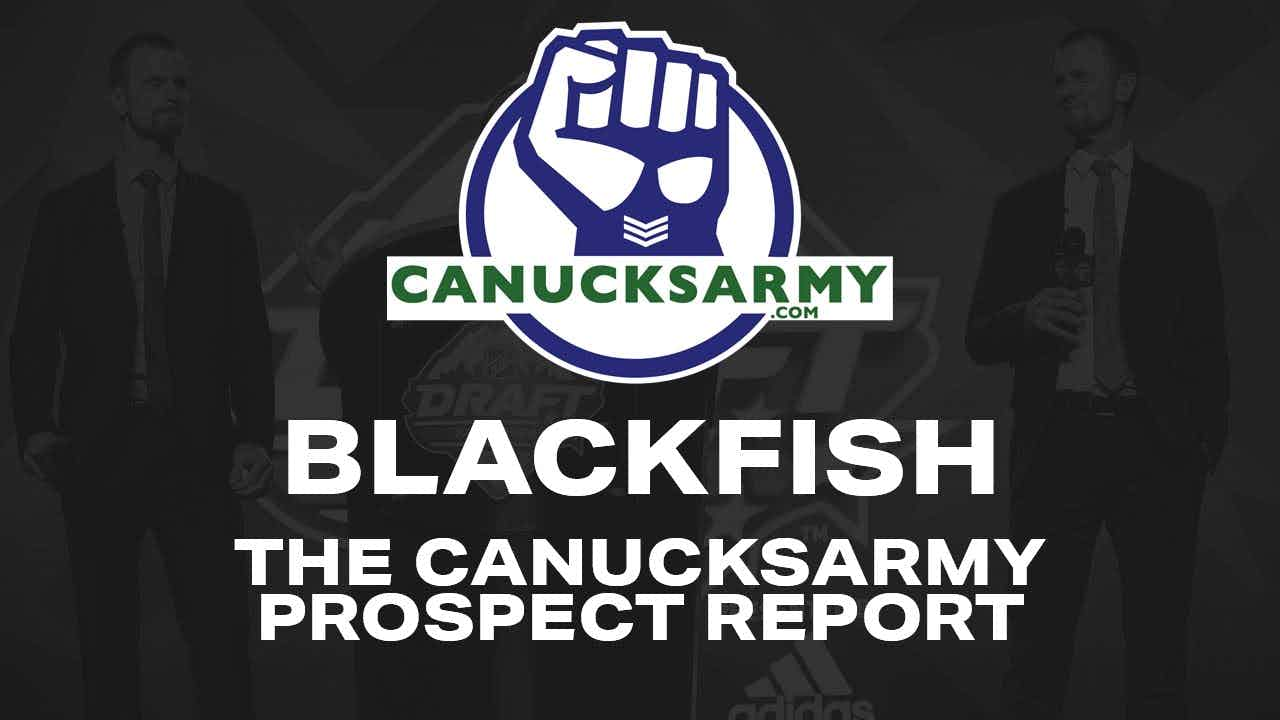Canucks Story Lines to Watch for in 2013
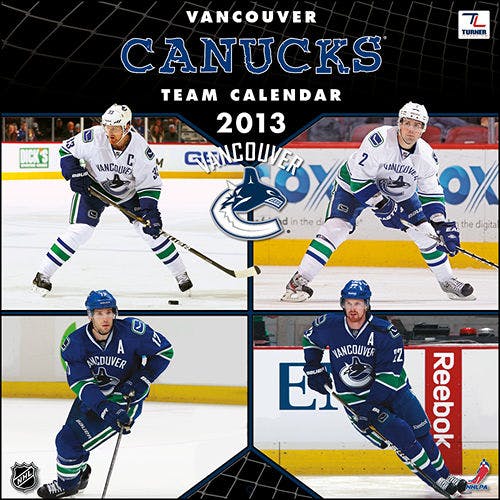
From the trade of beloved rookie Cody Hodgson, to the team’s unceremonious first round exit at the hands of the eventual Stanley Cup champion Los Angeles Kings, to the mystifying, frustrating NHL lockout – 2012 was a tough year for the Canucks and their fans. If you want to relive a bleak twelve months, Harrison Mooney broke it down exhaustively over at Pass it to Bulis on Tuesday morning.
Rather than looking back at the wasteland that was the Canucks’ 2012, we figured we’d look ahead to what promises to be a very intriguing 2013. I’ve singled out five primary story lines that I anticipate we’ll be following closely in the new year, and you can read all about it on the other side of the jump.
Will NHL Hockey be Played? (Yes)
Without NHL hockey to write about this past fall, this blog has gone relatively quiet over the past few months. I apologize to our regular, loyal readers for that, but realistically I’m not a guy with any experience in labour negotiations, or legaleese, and I didn’t feel like I could add much context to the annoying tit-for-tat of lockout negotiations on a daily basis.
My opinion is the same now, as it was in September and October (although the lockout has persisted slightly longer than I’d anticipated): the NHL has never been prepared to scrap the entire season, but they were clearly willing to shutdown the league for a few months in order to squeeze the players and obtain a larger slice of the revenue pie.
It’s the NBA model – you trust that the product is rivetting enough to draw fans back in by the playoffs, and hope that the show is fun enough to make everyone forget about the acrimony of a shortened campaign.
Overall I find Ryan Lambert’s recent analysis compelling in that, it seems to me that the league has done poorly to maximize their advantages (namely, the fact that they own a monopoly on professional hockey in North America) in negotiations. Meanwhile NHLPA boss Donald Fehr has done very well in my view to limit the pound of flesh extracted by league owners.
With the positive movement over the past few days, I really think we’ve reached the point where a deal is close at hand. Who knows wether or not the two sides agree on a new Collective Bargaining Agreement or play the season with a Memorandum of Understanding; but who really cares. Hockey season is nigh, and for all of the bitterness the latest lockout has engendered: I’m excited about it.
The Luongo Trade
For month we’ve known that Roberto Luongo, unquestionably the best goaltender in Vancouver Canucks history, would be traded.
I’d assumed that he’d be moved at the draft, but Mike Gillis didn’t get an offer he liked this past June in Pittsburgh and he stuck to his guns all summer. Gillis is like a Vancouver homeowner who is convinced that he doesn’t need to lower the price of his house (which has been on the market for lo, these past four months), because forget the market – all it really takes is one buyer who likes the asset enough to meet his price.
Whether or not Gillis’ strategy on this front is vindicated by the return the Canucks reap for Luongo’s services, a resolution to Luongo’s status is clearly nigh. Even if the Canucks do the unthinkable and hold onto Luongo for another (shortened) season, with the salary cap poised to decrease by about 14% by the 2013-14 season, the team’s current situation in goal (Schneider and Luongo will combine to eat up 9.33 million in cap-space through 2015) will become completely untenable at some point during this calender year.
When the Luongo trade saga finally reaches its belated conclusion at some point this year, expect a lot of hand-wringing in the Vancouver sports media market. The return will be criticized at length (and at this blog too, if it includes Tyler Bozak), and I’d expect a good deal of finger pointing among the faithful as well. Some will bemoan the fairweather fans who "ran the best goaltender in franchise history out of town", while ignoring the evidence that Cory Schneider might just be the younger, better, cheaper option who legitimately usurped the starters mantle. Still others will presumably turn on Cory Schneider in short order…
Either way, this transaction is going to be an omnipresent story this year, and I assure you we’ll watch and discuss and break it all down obsessively.
The Window to Win
Despite Mike Gillis’ repeated assurances to the contrary, it’s probable that the Canucks as they’re currently constituted are nearing the expiration date on their "championship window."
I tend to think that the "window" concern is somewhat over-rated; after all, the Canucks managed to get way younger this offseason by choosing Jason Garrison over Sami Salo, and Cory Schneider over Roberto Luongo. In terms of average age, the Canucks are now in the bottom half of the league according to NHLNumbers. Still, it’s fair to say that the club’s "elite" pieces are aging.
The Sedins turned 32 this past September, and while I don’t see any signs of declining effectiveness in their performance, Cam Charron has convincingly disagreed with that analysis and could very well be right. Also, beyond the Sedins there’s still Alex Burrows (31) who is on the wrong side of thirty, as is Kevin Bieksa (also 31). While Ryan Kesler is only 28, he’s coming off of multiple surgeries this past summer, and his injury history is quickly reaching a length that would rival one of Tolstoy’s classic novels.
Compounding the team’s "window" issue, is the complete lack of bluechip talent in the prospect pipeline and the improvement of divisional rivals like Minnesota (lol), Colorado and Edmonton. Getting past 29 other NHL clubs is difficult enough, but going forward the Canucks will also be competing against a much more unforgiving opponent in father time.
Is this the year the Canucks begin to show their age? Can Vancouver’s club score enough to keep up with the upstart youngins in Edmonton – who have completly lit up the AHL these past few months – this season and next? Will they be able to hang with the nasty collection of two-way bangers Greg Sherman has assembled in Denver? These are the big questions going forward, and while I tend to think that the news of the Canucks’ demise as Northwest Division heavyweights has been over-stated, expect the words "decline" and "window" to be on the tip of every critic’s tongue every time the Canucks stumble in 2013.
Gilman’s Biggest Test
Canucks General Manager Mike Gillis and capologist Laurence Gilman were masters of manipulating the NHL’s previous collective bargaining agreement. During their tenure, they’ve consistently maximized the club’s ability to derive value from their roster within the confines of the salary cap. They’ve managed this neat trick despite average to subpar drafting, largely because their contract work has been consistently stellar.
With the cap likely to drop from 70 million this season, to a shade over 60 million in 2013-14 however, Gilman and Gillis will face their biggest test yet this upcoming summer. The diminishing salary cap could cost the team Alex Edler, unless the club manages to clear an awful lot of cap-space in a Luongo trade or do something drastic like utilizing an amnesty provision and buying out Keith Ballard’s contract.
In all, the club will have six roster players hitting unrestricted free-agency next summer (Malhotra, Raymond, Higgins, Lapierre, Edler, Alberts) and a seventh who will be a restricted free-agent (Chris Tanev) due for a raise. They’ll also have 55.4 million in salary tied up in 12 players. Even if the Canucks manage to shed a liberal amount (say three million) in committed salary in an eventual Luongo trade, the club is looking at about 8 million dollars to sign third and fourth liners, a top-4 right-side defenseman, two depth defenseman and a back up goaltender during th summer of 2013. That’s a tall order, even if a diminishing cap does stem the inflationary pressure on free-agent salaries.
I expect we’ll spill truck loads of digital ink evaluating the way the Canucks navigate a new CBA in 2013, and it will undoubtedly shape the team’s fortunes going forward. If you’re a nerd, it should be pretty exciting.
Wither Abbotsford
In the summer of 2011, the Canucks signed a two-year affiliation agreement with the Chicago Wolves of the AHL. That agreement will expire at the end of this season, and the Canucks – and a whole host of other NHL organizations – will be in the market for a new affiliate.
The whispers out of Chicago and Vancouver suggest that neither the Wolves nor the Canucks would be eager to renew their affiliation, and anyway Chicago Wolves owner Don Levin has designs on owning an NHL franchise in the near future. Frankly, if I had to wager on it, I’d say that the Canucks will probably end up finding a new affiliate for the 2013-14 NHL season.
So could the Aquilini Group that owns the Canucks look to expand their brand and try to acquire the sweetheart loser arena management deal that the city of Abbotsford signed with the Flames three years ago?
Every so often, this issue flares up and I’ve generally thought it was all smoke and no fire. On the one hand, it makes a lot of sense. No one attends AHL games in Abbotsford. Even when the team is winning and the NHL is locked out the Abbotsford Heat can’t draw more than 4000 fans per game.
Meanwhile the city of Abbotsford, who guaranteed the Calgary Flames organization that they’d offset any losses, paid the Flames nearly three million in tax-payer funds last year (and will probably face a similar payment again this year). Over the course of the deal, the shortfalls have increased which has made the arena deal and by extension the Heat even less popular locally.
Over the past few years a pattern has emerged: the only time the Heat draw fans is when the Wolves (or formerly the Moose) are in town. So presumably an Abbotsford based AHL affiliate would make a lot more economic sense if the team was affiliated with the Canucks as opposed to the Flames.
The Canucks would win in such a scenario too because they’d be able to market their young stars to a local audience, they’d be able to earn a nice chunk of money selling the team’s regional broadcast rights, and they’d have an AHL affiliate in their own backyard. Injury call ups wouldn’t have to book a flight, they’d just have to brave the commute over the Port Mann.
Of course, the Flames remain a major stumbling block. They’re locked into an agreement with Abbotsford for another six seasons after this one, and while Abbotsford bleeds money in the deal, the agreement has been a fantastic one for the Flames. The city covers any losses the Heat sustain and it’s a short flight from Vancouver to Calgary, which has been exceptionally convenient for the Flames as they’ve been hit hard by the injury bug over the past couple of seasons. If the Aquilini group wants to induce the Flames to part ways with the Heat, the price will be steep.
With the Canucks agreement with the Wolves expiring, I suspect we’ll hear a lot of scuttlebutt in 2013 about the Aquilini’s and Abbotsford. It just makes too much sense, even though hammering out an agreement with the Flames won’t be easy (to put it mildly). Without doubt, this will be fascinating story to watch unfold in 2013.
Recent articles from Thomas Drance

